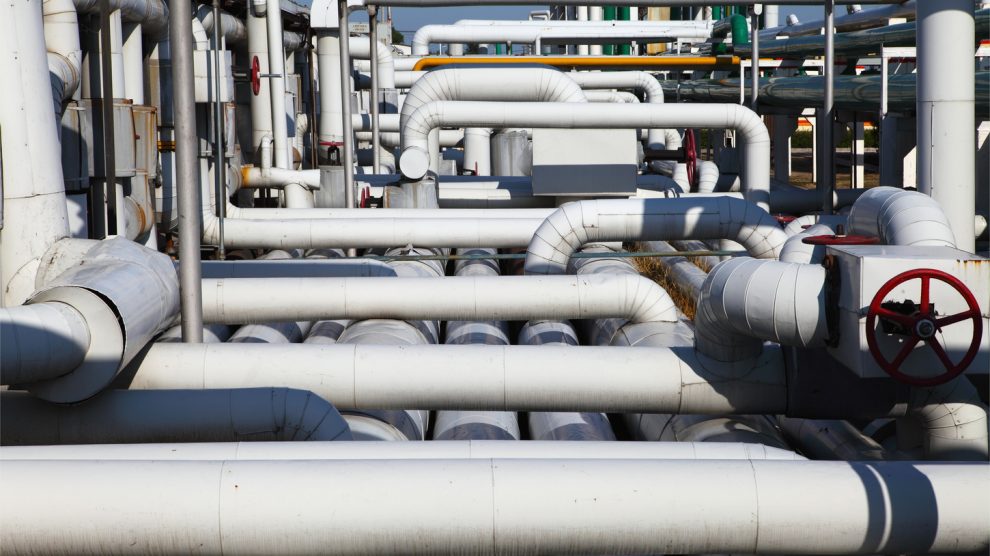With the Russian flag likely to fly over Kiyv in the next days, the West’s sanctions are about to tighten their grip on the Kremlin and its key institutions.
On Friday morning, while renewing his condemnation fo Russia’s violent invasions and his solidarity to Ukrainian President Volodymyr Zelensky, Italian Prime Minister Mario Draghi spoke of the impact of said sanctions on the European economy.
“The greatest concern is in the energy sector, which has already been hit by the price rises of recent months. Around 45% of the gas we import comes from Russia, up from 27% ten years ago,” he noted.
The PM then explained that Italy was pushing the EU to adopt common gas storage mechanisms, to cope with temporary supply reduction. He added that the Italian government is working on increasing alternative supplies from other routes, such as the US, and thanked President Joe Biden for his willingness to help.
In closing, Mr Draghi warned that reopening coal-fired plants may be necessary to fill any immediate shortfall, and he stressed that the ultimate souldtion would be renewable energy. Meanwhile, Italy is pondering how much the already-approved sanctions package will actually hurt.
Four Russian State-owned banks, including Sberbank and VTB (the country’s second largest), and 13 companies will see their financial operations on the US and Western markets restricted. Among those is State gas giant Gazprom.
However, sanctions remain a double-edged sword. Rome, like other capitals, is in no position to halt incoming flows of fossil fuel. And, as it happens, Italian institutions – along with French ones – are among the most exposed to the Kremlin and its assets.
The fossil fuel variable behind SWIFT
The so-called “mother of all sanctions” is still looming in the background, but the US and Europe do not seem to be fully united on a key issue: the removal of Russian banks from the SWIFT (Society for Worldwide Interbank Financial Telecommunications) circuit, which greatly facilitates international payments between financial institutions around the world.
SWIFT carries messages with the instructions needed to transfer funds: not the actual money, but the address to which it should be sent. This is done by means of a code, deemed one of the most efficient mechanisms for verifying the identity of the bank or financial institution making the payments.
International media depicted Italy, along with Germany, Austria and others, as unwilling to insert the SWIFT measure in the ultimate sanctions package. Notably, though, a source from the Italian Companies and Exchange Commission (CONSOB) told Decode39 that Rome is actually much more aligned with the US on this issue than is generally believed.
But the key, insurmountable issue is that payments on gas and oil are done through SWIFT. If the system fails, then payments would, too – and Europe is simply not ready yet to wean itself off Vladimir Putin’s pipelines.
Assessing the exposure of financial institutions
Violently striking Russian banks could cause quite a few problems for the Italian financial system. As far as banks alone are concerned, 0.5% of their assets – i.e. around €25 billion – are exposed to Russian finance via bonds, securities, investments and loans. Crippling the latter could entail hurting the former.
According to Credit Suisse, Italian and French institutes’ exposure to Moscow amounts to over $30 billion, while the Austrian figure is around $22-23 billion.
With regard to individual institutions, the highest exposure is that of Austria’s Raiffeisen Bank International, with a 20% share of revenues generated in Russia and loans totalling 10.5 billion, including Ukraine. The Austrian bank is just ahead of Société Générale, which has a 4% revenue share in Russia with 8.7 billion in loans.
The third-largest bank in terms of exposure is Italy’s UniCredit, which has been present in Russia since 2005 following the merger with HVB, which had its own subsidiary in the country. The bank currently has about 2 million retail customers and about 30,000 corporate customers, with a network of 72 branches that provide about €8 billion in loans.
In 2021 the Russian subsidiary earned the UniCredit group about 180 million in profits, a small part of the total 3.9 billion. And to think that the Italian bank had recently shown interest in Otkritie Bank, a Russian private bank subject to a public bailout and then put back on the market, along with its 477 branches and 44 billion in assets.
In short, the stakes are high; whoever wants to really hurt Russia must take into account the prospective European damage. Analysts at Allianz, Europe’s leading insurance group, advise caution, not so much to governments as to investors interfacing with Russia.
“With the large-scale invasion of Ukraine initiated by Russia, already cautious investors should adopt an even more cautious stance on risky assets. While no one knows how the conflict will ultimately unfold, it will certainly have far-reaching implications for markets, as evidenced by rising energy prices that are already fuelling rising inflation.”





